Opening Plenary Session
All the variations matter: bridging disciplines and communities to study diversity in life history and sexual behavior
What we learn depends on the questions we ask, which are shaped by our experience, perspective, and prior knowledge. The history of biology, and therefore how we understand life, has been affected by the cultural norms and unconscious biases of its practitioners. For instance, the role of female choice in sexual selection – now extensively documented – was considered implausible when Darwin proposed it, due to biases shaped by the society he lived in. The reproductive biology, sexual development, behavior, and life history of animals are dramatically more diverse than that of the humans who study them.
Both the primary work to discover this diversity and our subsequent work to understand it are ongoing, and require us to look beyond normative expectations. Animals don’t always do what they are “supposed” to do. Taking observations of unexpected variation seriously can generate new research directions and lead to substantive shifts in understanding. For instance, my students’ work – motivated by such observations – has changed our understanding of reproductive mode evolution in treefrogs and parental sex role evolution in glassfrogs. Both inclusive biology, which integrates perspectives from diverse human lives, and interdisciplinary perspectives from fields such as gender studies and queer theory, can increase the variation we notice, inform the questions we ask, and broaden our understanding of nature.
In my own PhD work, for example, the questions I sought to answer were shaped by my personal history and queer perspective. My discovery that hatching functions as a defense against egg-predators in red-eyed treefrogs then contributed to a larger shift in how we understand and study embryos in ecological context. Furthermore, I suggest that a better understanding of the diversity of sexual biology in animals, the plasticity that is fundamental to development, and our primate evolutionary history may help us better understand variation in human gender and sexuality.
The discovery of widespread and functionally diverse expressions of same-sex sexual behavior in animals calls into question a prevailing research paradigm based solely on the reproductive function of sexuality. Our increasing understanding of the critical shift from mother-only care to cooperative breeding in human evolution, and of the biology of other cooperatively breeding animals, also suggest new ways to understand the variation in human sexual and reproductive behavior. Social science demonstrates the value of human diversity for creativity, innovation, and problem solving. An inclusive research community will be best equipped to advance our understanding of variation in humanity and in nature.
Brief Biography
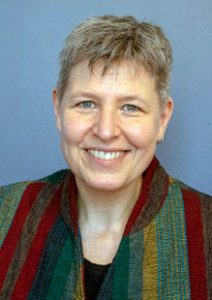
Karen Warkentin
Biology Department and the Women’s, Gender & Sexuality Studies Program at Boston University
Karen Warkentin is a professor in the Biology Department and the Women’s, Gender & Sexuality Studies Program at Boston University and a research associate at the Smithsonian Tropical Research Institute in Panama. She is an integrative biologist whose research combines ecology, evolution, development, behavior and physiology to understand variation in life histories. Much of her research focuses on phenotypic plasticity in early life stages of frogs, examining hatching as a critical transition point and plastic hatching timing as an embryo self-defense strategy. She is also interested in reproductive diversity and evolved and plastic variation in sexual traits.
Warkentin often works across disciplines. She collaborates with engineers and computer scientists to study how embryos (and other animals) use vibrations as a source of information and with humanists and social scientists in her gender and sexuality studies work. She helped develop Boston University’s Women’s, Gender & Sexuality Studies Program and is a member of the BU Gender + Sexuality Studies Group. She brings a biological perspective to gender and sexuality studies and a feminist and queer perspective to biology, and she is increasingly asked to combine these approaches in her presentations.
Warkentin grew up in Kenya and Canada, did her BSc at the University of Guelph, MSc at Dalhousie University, PhD at the University of Texas, Austin, and postdoctoral studies at the University of Kentucky and Smithsonian Tropical Research Institute. Since 1991, she has studied Neotropical frogs, working mostly in Costa Rica and Panama. Warkentin has served as an editor of Behavioral Ecology and Sociobiology and on the Board of Governors of the American Society of Ichthyologists and Herpetologists. She has organized symposia on Environmentally Cued Hatching Across Taxa and on Diversity, Plasticity, and the Science of Sexuality. Before pursing graduate studies, she worked in public environmental education for eight years and is committed to making her work accessible. Her team’s research has often been featured in the media, including Boston Globe, Discover Magazine, Discovery Channel, National Geographic, New York Times, Science News, Scientific American, David Attenborough’s Life in Cold Blood and NPR’s Science Friday, and a social media video viewed over 2.8 million times.
Scientific Plenary and ESA Awards Session
Resilience, Recovery and the Ecology of Change
Our world is changing rapidly and the subsequent consequences for socio-ecological systems will be profound. A trio of threats loom: increased frequency of extreme events, shifts in baseline environmental conditions, and rapid turnover in biota. How do we adapt our science to better reflect this new normal? The challenges we face today require a reevaluation of many core ecological concepts, including recovery, coexistence, resilience, and stability. We must consider whether these ideas provide the appropriate framework to understand contemporary ecosystems and whether they allow our science to inform societal challenges such as restoration and conservation. For example, is resilience the ideal theory and objective for a changing world? Progress also requires us to better incorporate interdisciplinary concepts such as non-stationarity, self-organization and adaptive capacity. Expanding our science to better reflect and describe change will allow our work to be more relevant, inclusive, and robust as we collectively face environmental change as the new normal.
The Robert H. MacArthur Award
The Robert H. MacArthur Award is given biannually to an established ecologist in midcareer for meritorious contributions to ecology, in the expectation of continued outstanding ecological research. The recipient is invited to be the Keynote Speaker at the Scientific Plenary.
Brief Biography
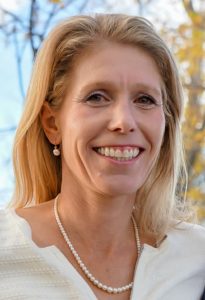
Katharine N. Suding
University of Colorado Boulder,
Robert H. MacArthur Award Winner
Katharine N. Suding is a Professor of Ecology at the University of Colorado Boulder. She is a Fellow of the American Association for the Advancement of Science and a Highly-Cited author who has written extensively in the areas of ecosystem dynamics and management, ecological restoration, biodiversity, and conservation.
Suding received her PhD from University of Michigan and spent a decade in the University of California system prior to joining the faculty at University of Colorado in 2014. At CU she leads the Niwot Ridge Long-term Ecological Research Program, a multidisciplinary project aimed at understanding high-elevation mountain systems; the Rangeland Resilience Project, involving researchers and ranchers across the Western US; and the Boulder Apple Tree Project, focusing on discovering and preserving historic apple trees.
New Phytologist Trust Keynote Session
The Ecology of Cultivated Landscapes: Theoretical, Methodological, and Ethical Considerations
The study of human-dominated ecosystems often requires an expanded definition of “nature” that encompasses domesticated organisms and landscapes, such as parks, gardens, croplands, and their constituent organisms. As a result, it is increasingly within the purview of many sub-disciplines of ecology to study the community assembly, structure, and function of ecosystems that include cultivars, intentional hybrids, and domesticated species and sub-species. Yet, there is not yet a consensus on how these organisms can and should be integrated into ecological theory and practice. Using examples of cultivated plant hybrids, I will discuss recent approaches to conceptualizing cultivated ecosystems from varying perspectives including: classical ecological theory, expanded socioecological approaches, ecosystem services frameworks, and actor-network theory. Each of these perspectives explicitly integrates human agency into ecology to varying degrees, and offer different advantages and disadvantages for understanding cultivated landscapes from an ecological perspective. In concert, these approaches have facilitated a growing understanding of the extraordinary ecological “success” of certain cultivars, such as turfgrasses, which have achieved a remarkable radiation over the landscape, not through classic reproductive fitness, but because of human-plant interactions in which humans allocate enormous resources for dispersal and stewardship. Yet clearly, there are environmental and ecological consequences of importing, hybridizing, and dispersing non-native cultivars into remote landscapes. Ethical considerations of intervening in landscape design and management are increasingly of concern to ecologists, as scientists become more directly engaged in ecological planning, design, and decision-making processes. To facilitate ethical approaches to ecological design and planning of cultivated landscapes, we might consider the ways in which cultivated landscapes fit, or do not fit, into the classical discourse of environmental ethics, and explore the implications for developing and applying professional standards such as the ESA Code of Ethics.
Brief Biography
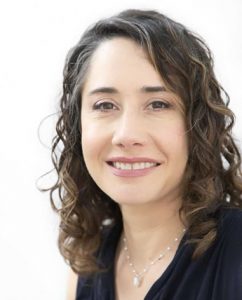
Diane E. Pataki
School of Biological Sciences, University of Utah Guest Lecturer
Diane E. Pataki is a Professor in the School of Biological Sciences at the University of Utah with an adjunct appointment in the Department of City & Metropolitan Planning. She also serves as Associate Dean for Research in the College of Science and Associate Director of the Center for Ecological Planning & Design.
Prior to arriving in Utah in 2012, she was on the faculty of the University of California, Irvine. She received a B.A. in environmental science at Barnard College and an M.S. and Ph.D. at the Duke University Nicholas School of the Environment.
Pataki’s work has spanned the impacts of climate change on ecosystems, the use of stable isotopes to study coupled human-natural processes related to urban CO2 emissions, and the impacts of urban vegetation on local climate, pollution, and hydrology. Her research is focused on improving our mechanistic understanding of the interactions between vegetation, the physical environment, and urban planning, forestry, and design. Her lab utilizes methods from plant physiological ecology, ecosystem science, and bioclimatology to measure the impacts of urban landscapes on urban climate, pollution, atmospheric chemistry, and human thermal comfort and well-being.
Pataki is a Fellow of the American Geophysical Union, Chief Specialty Editor for Urban Ecology at the journals Frontiers in Ecology and Evolution and Frontiers in Sociology, and a member of the National Science Foundation Directorate for Biological Sciences Advisory Committee (NSF BIO AC) and Advisory Committee for Environmental Research and Education (NSF AC ERE). She is the incoming ESA Vice President for Science in 2019.
USSEE Plenary Session
How long-term urban systems research has informed interdisciplinary social-ecological approaches in an era of convergence science?
Brief Biography
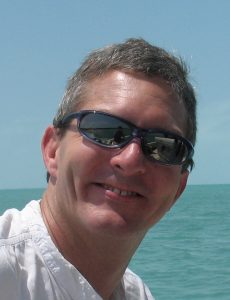
Daniel L. Childers
School of Sustainability at Arizona State University
Dan Childers is a Professor in the School of Sustainability at Arizona State University. He is the Director of the Central Arizona-Phoenix LTER Program and was the co-Director of the Urban Sustainability Research Coordination Network, both funded by the National Science Foundation (NSF). He has also been the Director of the Florida Coastal Everglades Long-Term Ecological Research (LTER) Program. His research focuses on wetland ecosystem ecology, urban ecology, and sustainability science. Dan has conducted research in many different freshwater and estuarine ecosystems around the world, including working for nearly 15 years in the Florida Everglades. Since the early 2000s, he has expanded his research portfolio to include urban ecosystems, the ecology-design nexus, water dynamics in cities, urban sustainability, and urban wetlands. Dan has published more than 135 peer-reviewed articles, book chapters, and books, won grants that have totaled nearly $40 million, and advised more than 35 Ph.D. and M.S. students.
Recent Advances Lecture Session
P-Values and Cultural Values: Creating Symbiosis Among Indigenous and Western Knowledges to Advance Ecological Justice
Ecological knowledge, generated within the worldview of western science has greatly advanced our understanding of ecological systems and forms the foundation for environmental protection. However, these advances in knowledge have not been widely reflected in cultural shifts toward alignment of social systems with ecological values. The urgent issues we face lie at the intersection of nature and culture and we know that scientific knowledge alone cannot propel a change in cultural values. Western scholars increasingly recognize that indigenous worldviews, once targeted for erasure, are essential elements of cultural transformation toward sustainability. In this urgent time, we need not only more knowledge, but more wisdom. How can our work as ecologists contribute to this movement? Such a shift requires that we continue to broaden participation in ecology by diverse communities grounded in different worldviews. Inclusion efforts must grow beyond just increasing access into authentic intellectual inclusion of indigenous science to benefit our students, our science and serve social and ecological justice. This talk highlights innovative models for productive integration of scientific and indigenous knowledges in research and education. How is the effectiveness of our science constrained by the colonized, western worldview in which it was formed and continues to operate? What opportunities arise with de-colonizing and re-indigenizing our relations with the natural world? As professional ecologists can we broaden our perspectives and capacities so that we understand the impact of our work, not just with p-values, but with our contributions to shifting cultural values towards a just and sustainable future?
Brief Biography
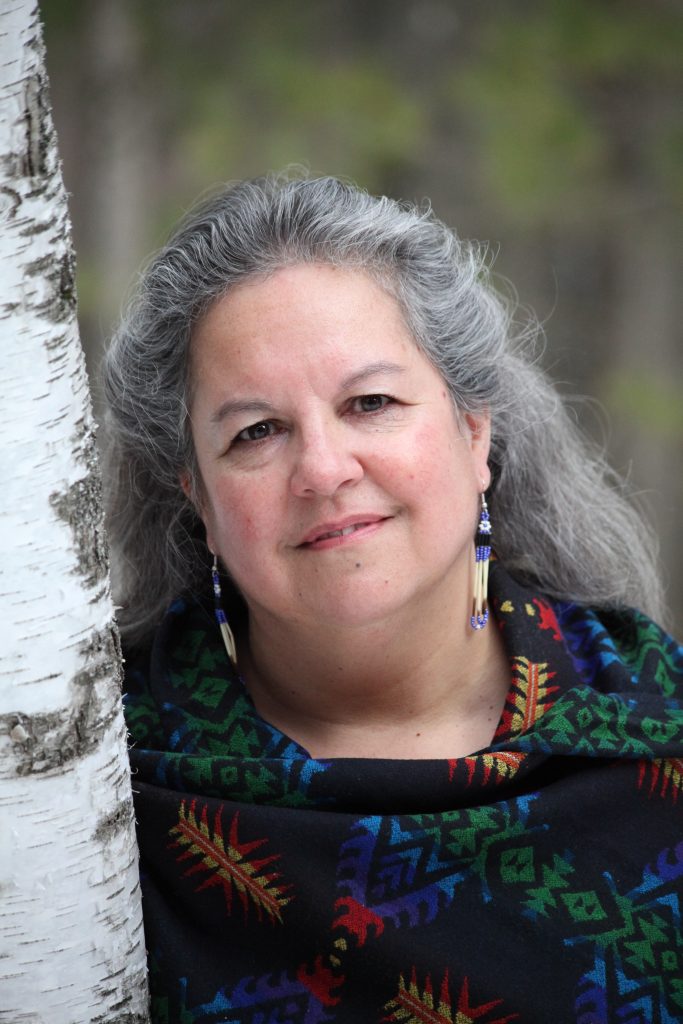
Robin Wall Kimmerer (Potawatomi)
SUNY College of Environmental Science and Forestry
Robin Wall Kimmerer (Potawatomi) is a mother, scientist, writer and Distinguished Teaching Professor of Environmental Biology at the SUNY College of Environmental Science and Forestry. She is the founding Director of the Center for Native Peoples and the Environment whose mission is to create programs which draw on the wisdom of both indigenous and scientific knowledge for our shared goals of sustainability. Kimmerer was a cofounder and first president of ESA’s Traditional Ecological Knowledge section. She is the author of “Gathering Moss” and “Braiding Sweetgrass: Indigenous Wisdom, Scientific Knowledge and the Teachings of Plants”. Her interests include not only restoration of ecological communities, but restoration of our relationships to land.


